This piece is part of the Taiwan-U.S. Quarterly Analysis series, which features in-depth analysis of important issues in Taiwan and the U.S.-Taiwan relationship by leading experts, with the goal of providing a range of perspectives on developments relating to Taiwan.
The People’s Republic of China (PRC) and Taiwan both boast of having among the lowest COVID-19 death rates in the world. Although their political relations are rocky, success with COVID-19 on both sides of the Strait helped maintain regional order. The PRC is Taiwan’s closest neighbor, and thousands of people from Taiwan live and work there. If the PRC had failed to prevent COVID-19 outbreaks within its borders, it would have had dire consequences for Taiwan and the entire East Asia region. Given Taiwan’s close proximity and soured relations, it is reasonable to ask whether China’s ability to contain COVID-19 has changed Taiwan’s cold sentiment towards the PRC.
Do people in Taiwan approve of China’s COVID-19 response?
Our survey findings are bad news for Beijing: China’s COVID-19 experience has not made Taiwan people warm up toward the PRC; on the contrary, for many in Taiwan, COVID-19 is another example of the PRC state’s deficiencies.
The most striking finding of our May 2021 survey of 1,000 respondents is how many Taiwan people blame the PRC for the COVID-19 pandemic. We asked respondents to rate China’s level of responsibility from 0 to 10 (10 being most responsible) with the following prompt: “Some people believe that the pandemic is no one’s fault, while some believe that since the first cases are from China, China bears the responsibility for the global pandemic.”
Twenty-six percent of our respondents chose the highest value, in effect saying the pandemic was entirely China’s responsibility. Altogether, 67% said China bore at least some responsibility, while 20% said China bore little or no responsibility.
One reason Taiwan people hold the PRC responsible for the pandemic is that they believe Beijing failed to control the spread of COVID-19 to the rest of the world. Asked to evaluate the PRC government’s measures to contain the global spread of COVID-19, our respondents again gave Beijing low marks. Nearly 60% said the measures were bad (21%) or very bad (38%). Just under 8% said they were good, while another 19% said they were fair.
On this measure, partisanship made a big difference, with respondents identifying with the opposition Kuomintang (KMT) giving the PRC much higher marks than respondents identifying with the ruling Democratic Progressive Party (DPP).
Despite relying on authoritarian measures to contain the outbreak, Beijing has promoted positive narratives about its success controlling COVID-19 within China, even using the pandemic as evidence that China’s political model is superior to Western-style democracy. However, Taiwan, which contained the pandemic without lockdowns or excessive surveillance, has not bought into Beijing’s authoritarian messaging. Nearly half (46%) of our respondents said their image of China worsened as a result of the pandemic, while less than 5% said it had improved. The rest (49%) said their image of China had not changed.
One might argue that what we are seeing is Taiwan people, who dislike the PRC, refusing to give Beijing credit for its COVID-19 successes. Yet, our survey suggests these findings are not just preexisting anti-China sentiment showing through. We additionally asked a survey question asking respondents for their overall appraisal of the PRC government. While this differed with partisan affiliation, few respondents gave the PRC government high marks.
If we consider only those respondents who gave the Chinese government a neutral appraisal, the COVID-19 effect is even less than in the survey overall: 68% said COVID-19 had not changed their view of the PRC government. Still, 29% said it had worsened their view. These PRC regime agnostics also were more willing to give Beijing the benefit of the doubt when it comes to its management of the pandemic’s global spread — but not that willing: of that group, 25% thought the PRC did a very good or somewhat good job, while 48% said it had done a “not so good” or “very bad” job of containing COVID-19’s global spread. Nor did the agnostics let the PRC off the hook for the pandemic: 60% of them said China bore some responsibility for the COVID-19 pandemic.
Vaccines
Casting blame is easy. We wanted to know whether our respondents’ Sino-skepticism would extend to a more utilitarian matter: vaccine availability. When our survey was taken, vaccines were just coming on the market in Taiwan. In order to find out whether the intense need for vaccines would outweigh our respondents’ skepticism about the PRC, we incorporated an experiment into our survey. We randomly assigned our respondents to one of two groups. One group was asked whether they supported the Taiwan government’s purchase of the Sinovac vaccine (the Mandarin name, Kexing, does not imply that it is from the PRC); the other group was asked whether they supported purchasing a PRC vaccine. Taiwan people were eager to be vaccinated, but vaccines were in short supply.
We found that framing the vaccine as being made in the PRC versus using its official name led to less support for purchasing the vaccine. There was a statistically significant difference between those supporting the Sinovac vaccine (40.6%) and those endorsing the “Chinese” vaccine (34.4%). It is likely that the majority of respondents knew the origin of the Sinovac vaccine, but our data shows that regardless, our respondents’ skepticism about the PRC affected their policy preferences, even with lives at stake.
Conclusions
From Beijing’s cross-Strait policy perspective, the COVID-19 situation must be incredibly frustrating. At long last, it has a clear accomplishment to boast of: despite being the point of origin of COVID-19, it has managed to prevent the disease from ravaging its people as COVID-19 has done nearly everywhere else in the world. Yet, the one place that it wants most to impress also kept COVID-19 at bay, and instead of looking at the PRC’s policy with admiration — even grudgingly — Taiwan people blame the PRC for the pandemic. In other words, although China’s domestic audience lauded Beijing’s triumph in containing the spread of COVID-19, that same outcome was viewed as another failure in the eyes of those it is most hoping to win over in Taiwan.
Why would Taiwan people not be impressed with China’s COVID-19 response? In our previous survey research, we find that despite Taiwan people feeling cultural connections to China, there is very little political connection. In other words, despite acknowledged cultural similarities, Taiwan people emphatically do not want to be governed by the Chinese political system. Even though the PRC was able to contain COVID-19, it did so using authoritarian measures. We know from years of survey research that Taiwan people value democratic institutions, and democracy itself is a central part of contemporary Taiwan identity. It is not enough to simply contain the pandemic. In order for that success to appeal to Taiwan people, Beijing would need to avoid authoritarian methods.
From Taiwan people’s perspective, it is no secret that the PRC would like to convince them to side with Beijing and support unification, despite their increasing opposition to the idea. Beijing tried its best to sell itself as a positive player in the global pandemic, but ultimately failed to win over hearts and minds in Taiwan. If the PRC hopes to move Taiwan people toward accepting some form of unification, it must persuade them that it is an appealing partner. That would require convincing them that the mainland is neither threatening nor hostile toward Taiwan. Our previous research shows that Beijing has a long way to go to achieve that outcome. If PRC leaders thought their success in controlling COVID-19 would move the needle on that front, they seem to have been mistaken.
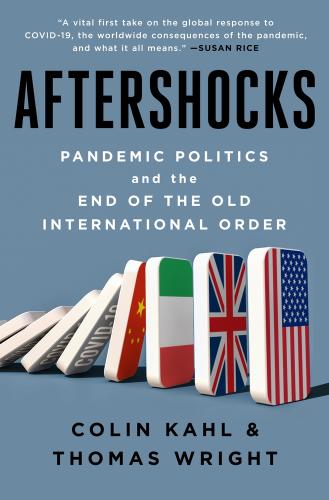
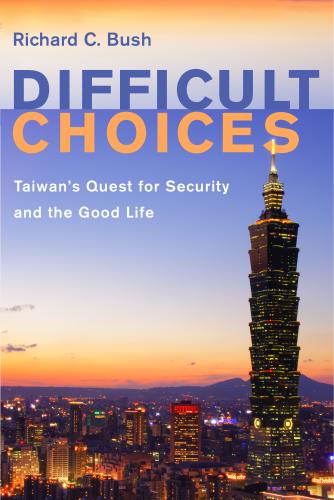
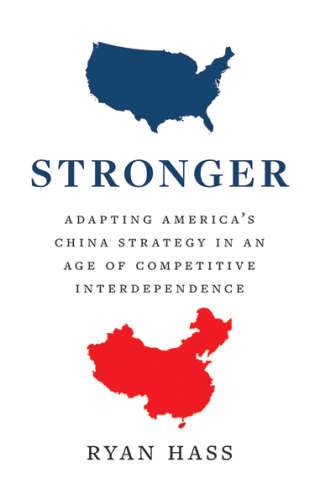
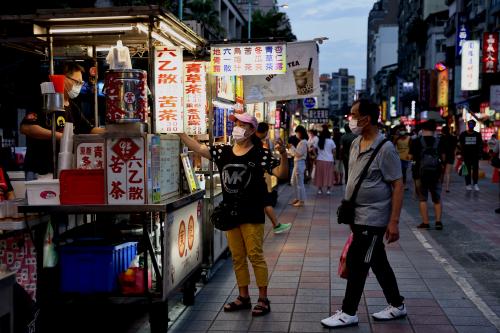
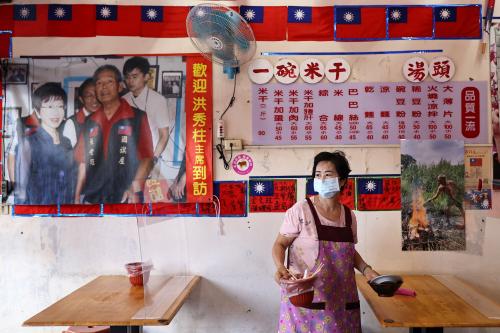







Commentary
Taiwan’s people are not impressed with China’s “Zero COVID” status
March 11, 2022